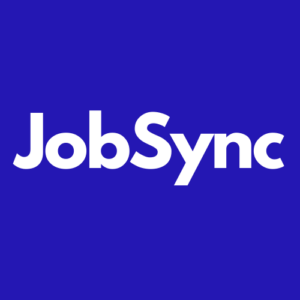
5 Insights to Help You Win at Recruiting in 2023
In 2022 we saw some big changes in the workforce and things do not seem to be slowing down. In our final roundtable of the year, Brian Fink joined us as we talked about trends, predictions, and the major markets being affected by these changes. But it was our attendees who really came through with the key skills that will make the great recruiters stand out in a sea of change, uncertainty and new expectations – check out the full replay here.
As the conversation raged on about markets and predictions, Brian asked our other roundtable members to provide key insights on how to lead with understanding as you work with candidates in the market. Here are the top 5 insights to win at the recruiting table, from the roundtable conversation:
1. Empathy
According to Jennifer Petzold, empathy is a significant component of the recruiter’s job.
As a recruiter, your responsibilities include caring for each candidate and guiding them through the hiring process. You have the knowledge to help candidates shine.
Lindsey Collum doubled down that internal empathy is just as important. When we take a proactive approach to understanding the candidate, the recruiter, and the hiring team’s experience, it’s a win-win-win. Upfront discussions on expectations with your hiring managers and having clear and consistent processes will reap the reward of a better experience for everyone.
2. Transparency
No one likes to be the bearer of bad news, in fact, people naturally gravitate away from telling someone something they know will not be received well. Couple that with recruiters that are far too busy and being pulled in too many directions, and the best of intentions get lost.
“Be transparent with candidates no matter the response.” – Sara Hollister
Although we work in the people business, it seems we have forgotten how to be human when it comes to our interactions with candidates. Emails, Zoom calls, and texts are fairly easy ways to communicate with full transparency. Candidate not moving forward? Tell them, and tell them immediately. There’s been a change and the role is no longer available? Tell them right now. The world is much smaller than we all realize. Transparency builds trust and by being honest and upfront, many candidates will consider being a future applicant with your company.
3. Communication
Akram Ibrik suggests a 24-48 hour turnaround time for feedback for any candidate interactions. He also suggests taking a moment to remember what it’s like to be a candidate. Think about what it was like to apply for a job, and then recall what it’s like to apply for 20+ jobs, simultaneously. It is easy to forget the whole experience when we are on the other side.
“It’s common sense, candidates want feedback, when recruiters don’t close the loop, they [the candidate] have made space during this process in their hearts [for the job/company], you have moved on, but they still have that open space there waiting for you to fill it.” – Dana Neiger
Another tactic, Brian reserves Fridays (Follow-up Fridays) where he touches base with the top candidates he is working with (or worked with previously to catch up and stay relevant).
4. Accountability
When hiring managers can’t get on the same page and have empathy for their candidates and the experience they provide, Lalitha Shivkumar likes to send them NPS score of the entire company as a reminder that the way your company and brand are perceived is a direct result of candidate experience – and that if you choose to give someone a bad experience and reflect poorly on the brand’s value – you are accountable for the results.
Treat people the way they want to be treated.
5. Continually Learn
While you are already communicating with your candidates, Matt Cogger suggests keeping a pulse on the frustrations that people have relating to their candidate experience and learn from that. LinkedIn and Reddit have a plethora of posts that go into great detail about what people experience during their hiring process (and some call companies out by name). Social media can be a great (and free) way to learn directly from candidates what not to do. Doing that and reaching out and asking for feedback about what your candidates didn’t like about a previous position/experience or what drove them to make a change can really help mold your own processes.


